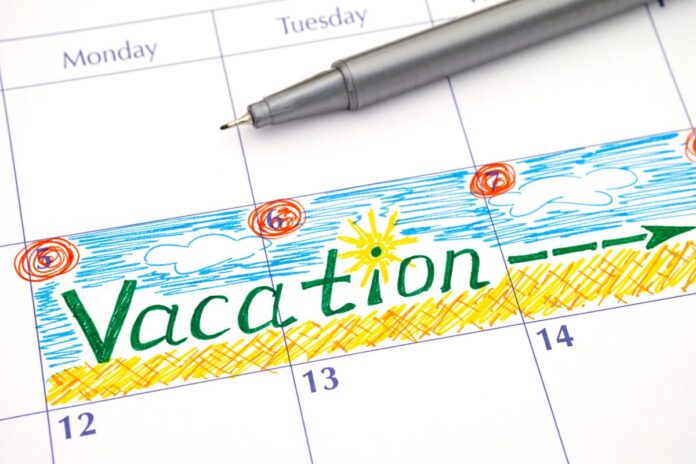Between the upcoming holiday season and pent up demand from delayed vacations, travel is picking up … [+]
getty
There have been a lot of news stories about the coming crush of holiday travel, with consumers booking Christmas vacation earlier than ever (CNBC), availability already growing tight and driving up prices (Wall Street Journal), while many tour operators have reported new record setting reservations for 2022, especially for active trips and to exotic and European destinations. Even countries that have had the strictest border policies throughout the pandemic, such as Chile and Australia, are opening up.
Travel is coming back fast, but aviation has not kept pace. As air travel has been ramping back up, there have been many problems with cancellations and delays, as well as understaffing of both airlines and airport services, often resulting in huge lines at airport eateries and security. In addition, many long-established routes that were suspended have yet to return. The latest available numbers from the U.S. Department of Transportation (DOT) are for the month of July 2012, and the cancellation rate across U.S. carriers was more than double that of July 2020 – when far less people were flying. For those who have not yet been back to the airport since the pandemic, these kinds of reports can be dispiriting or intimidating, and no one seems to know quite what to expect.
I had a few essential work trips domestically during the first wave of the pandemic, when air travel was mostly shut, and my work has ramped back up since, resulting in several longer recent domestic and international trips on a variety of carriers, so I have personally been through a mixed bag of experiences, varying greatly by airline. For example, in Boston’s Logan Airport, the Swiss/Lufthansa lounge, once very good, was pared down to nothing but bags of chips and canned soft drinks, despite a busy crowd. You could not even get a cup of coffee, let alone a meal. But it was not due to local or airport policy, it seemed to just be a way to use the pandemic excuse to cut costs, since in the same terminal, the Air France and OneWorld lounge was still serving a wide variety of real food and an open bar.
Between increased flight cancellations and across the board staffing shortages, air travel can seem … [+]
Getty Images
In Frankfurt, Lufthansa’s many lounges were reliable as ever, while in Zurich’s international terminal, all the SWISS lounges, business and first, were closed altogether even as multiple crowded flights to the U.S. sat hours from departure, leaving frequent fliers out in the cold. Lufthansa took on-board masking policies pretty seriously, SWISS not so much. I’ve flown United a few times, domestically and internationally, and they have been reliable in terms of clarity and enforcing protective standards, though a new touchless policy that allows only people who add a credit card to the app before leaving the jetway to buy any food or drink onboard is already seeming to confuse fliers. On the other hand, United’s move away from shared serving vessels and to only individually packaged foodstuffs has actually made their lounges, which I have belonged to for years, better than pre-pandemic.
The bottom line is that it is still hard to predict what to expect and more than ever, the simple way around this is to try to travel with better airlines and through better airports. This is especially true for those of us concerned about the risks of COVID-19. Domestically, I avoid airlines that are not part of alliances (Jet Blue, Spirit, etc.) and stick to the big three (United, American, Delta) which still have the ability to rebook passengers on other carriers when things go wrong (and bigger networks and more alternative routings to begin with).
Airlines have added additional health safety measures, but not all are equal. Two new industry … [+]
Getty Images
On the good news front, I have both TSA Pre-Check and Global Entry, and have yet to experience any significant wait for security or immigration, across many different airports, big and small, here and abroad. However, for international flights the documentation process is more cumbersome, with airlines and officials checking vaccination and test results, so you need to leave more time for check-in, especially upon your return. I had no problems leaving Paris, but friends who went a day earlier spent nearly three hours getting though check-in, security and border control at Charles de Gaulle and very nearly missed their flights home.
Additionally, most countries now require additional paperwork and new forms, health questionnaires, COVID tracking, that sort of thing. In some cases you need to have these filled out before you check-in, in some by the time you land, so you really need to do the research. There is no great clearing house but searching for the country you are visiting and current requirement for foreign travelers will usually take care of it. Do this early and often as rules keep changing. Italy added the substantial requirement for a negative PCR (longer version) test just a few days before my trip. Don’t forget transit airports as well – when I flew through Switzerland I had to do a special online COVID Tracing form even though I was never leaving the airport.
Hamad International Airport (HIA), Qatar Airways’ hub in Doha, was just ranked the World’s Best … [+]
Qatar Airways
It’s always been better to fly non-stop, but now it’s more important than ever, and worth paying a price premium, as every additional leg increased the odds of mishap – and increases your time masked and in public. The DOT reports showed that the trio of Allegiant, Jet Blue and Frontier led all other carriers in both worst on-time arrival rates and most cancellations, while Hawaiian, Delta and Alaska were best in both categories.
I feel safer flying internationally than domestically because most countries are limiting flights to vaccinated passengers, just-tested passengers, or both. On a recent flight to Italy, I knew that everyone getting on with me had to show both proof of vaccination and a negative PCR test to board, whereas on domestic flights it’s logical to assume that some of the passengers are among the forty-plus percent of unvaccinated citizens and putting the rest of the travelers at increased and unnecessary risk. So, to maximize safety, whenever possible, go from a gateway airport directly out of the country rather than connecting via an additional domestic leg.
Internationally it is hard right now to do any better than flying Turkish Airlines and Qatar Airways. Not only are both consistently ranked among the very best carriers on earth, but they have maintained much stronger operations throughout the pandemic and as a result had less downsizing to recover from. In fact, both have been expanding routes fairly aggressively even now, both implemented early extra safety standards, and both have exceptional hub airports – two of the best on earth, connecting seamlessly to a lot of destinations. In fact, by the standard of destinations served, Turkish is the world’s largest airline, going more places than anyone else. While there are different measurements of “largest,” I think places to go is a lot more important to fliers than numbers of passengers carried or planes in the fleet.
Flying coach? Turkish Airways just won a major industry award for having the Best Economy Class of … [+]
Turkish Airlines
When air travel first returned during the pandemic last spring, Turkish immediately rebooted as Europe’s busiest operator with 400 flights daily in the Eurocontrol area by mid-June 2020, the greatest number since the pandemic began in late March. Despite the slowdown, Turkish flew 28 million passengers in 2020, and as of April 2021 was averaging 797 flights a day to 208 destinations worldwide. This spring they broke Heathrow’s long record strangle-hold and Istanbul became the world’s busiest airport.
At the same time, Qatar was greatly helped by its position as the world’s largest cargo carrier, and this grew enormously during the pandemic, keeping revenues rolling in. Its latest annual report states that, “Whilst our competitors grounded their aircraft and closed their routes, we adapted our entire commercial operation to respond to ever-evolving travel restrictions and never stopped flying, operating a network our passengers and customers could rely on. With the support of our varied fleet of modern, fuel-efficient aircraft, we were able to ensure that more of our scheduled flights operated than any other carrier… Despite enduring one of the most difficult years in the Group’s history, based on strong commercial fundamentals, the airline has rebuilt its network from a low of 33 destinations to more than 140 destinations today. The airline continued to identify new markets, launching nine new destinations – Abidjan, Côte d’Ivoire; Abuja, Nigeria; Accra, Ghana; Brisbane, Australia; Harare, Zimbabwe; Luanda, Angola; Lusaka, Zambia; San Francisco and Seattle, U.S. The carrier was also one of only a few global airlines to continue operating to key cities, including Amsterdam, Dallas-Fort Worth, London, Montréal, São Paulo, Singapore, Johannesburg, Sydney and Tokyo. This is in addition to the expansion of Qatar Airways’ operations beyond pre-pandemic levels in several markets, including Brazil, Canada, Nigeria, and the U.S., ensuring the airline is well-positioned to take advantage of the recovery of international travel.”
The annual Conde Nast Traveller Readers’ Choice Best In The World travel rankings just came out, with more than 800,000 consumers around the globe voting. Istanbul was ranked the second-best airport on earth (Singapore was number one) and Doha, Qatar’s hub, was fifth (no North American airports made the list).
Qatar’s brand new “World’s Best Stopover” packages let passengers spend up to 4 nights trying things … [+]
Qatar Airways
More important in the industry is the annual World Airlines Awards by London-based research group Skytrax, the most important ranking of its kind. Hamad International Airport (HIA), Qatar’s home and hub in Doha, was tops as the World’s Best Airport in the Skytrax 2021 Awards. Just a week ago, Qatar gave travelers another very impressive reason to choose the airline and Doha. In partnership with Discover Qatar, the airline launched the “World’s Best Value Stopover” packages, and while the title might not be modest, it is hard to argue with the incredible value proposition. Anyone vaccinated who is flying through to another destination can add a stay of up to 4-nights in Doha. The packages have various themes and are designed to cater to different interests. Options include a desert safari; luxurious resorts, spas and restaurants; exploring museums, galleries; shopping, and so on. All include lodging in a selection of luxurious 4-star and 5-star hotels, and amazingly, the Stopover packages begin at just $14 U.S. per person per night.
Industry experts rank Qatar number one in the world for both best Business Class and Business Class … [+]
Qatar Airways
In the 2021 Skytrax awards Qatar (again) won the coveted overall World’s Best Airline, as well as World’s Best Business Class (its revolutionary Q Suite cabin turns every seat into its own mini-room, and offers paired seats that become queen beds). But While Qatar has the best business class in the sky it is not just for well to do travelers – the airline was Number Two in the world for Economy Class (Japan Airlines got the top spot) and Turkish also made the Best Economy list. What else? Qatar won Airline of the Year 2021 (for the sixth time), World’s Best Business Class Seat (in addition to overall business class), World’s Best Business Class Lounge, Best Business Class Food and the all new COVID-19 Airline Excellence Award. Turkish took multiple honors as well, including Europe’s Best Business Class Lounge, Europe’s Best Economy Class and also got the new COVID-19 Airline Excellence Award.
And the winner is…. Turkish Airlines for Best Lounge in Europe, at the brand new and highly … [+]
Turkish Airlines
I’ve flown business class on Turkish and it is very impressive across the board, from the onboard chef – a novel touch – to the state of the art lay flat seats and generally excellent service. But their flagship lounge blew me away with its incredible design and variety of offerings – and that was before a whole new airport and what is said to be an even better lounge, now ranked the best in Europe.
But where Turkish Airlines really stands out is for its amazing reach worldwide. For example, it has more flights to Africa than any other airline – even African carriers. This is amplified by the fact that it belongs to the top group, Star Alliance, greatly expanding its global network with exceptional partners such as Singapore, United, EVA, Thai, SAS, Lufthansa and dozens more. Its exceptional Istanbul hub straddles Europe and Asia and is a better – if sometimes overlooked -connection for many flights beyond Western Europe than rivals using Heathrow, Charles de Gaulle or other old and overcrowded airports. A just announced code-sharing partnership with Finnair adds many destinations Scandinavia to the map. Two weeks ago, Turkish added its 11th U.S. gateway city, Dallas, on the heels of the 10th, Newark, and a third Canadian gateway, Vancouver. Denver is next on tap, for sixteen North American airports offering non-stops to Istanbul and onwards to hundreds of destinations across four continents.
Turkish Airlines flies more places than any other airline. In the past few months it added new … [+]
Anadolu Agency via Getty Images
When travel resumed in earnest last June, Turkish Airlines and the Istanbul airport added new safety protocols that are now fairly common across the aviation experience on most carriers. They went to touchless boarding (whatever airline you fly, be prepared to scan you own pass at the jetway), added self-serve kiosks to reduce check-in interaction and required mask use in all parts of the airport and in-flight. Turkish banned the use of masks with vents or valves, which is now also common, so make sure you do not wear one of these when flying. Most airlines have also prohibited “tube style” masks, bandanas and the equivalent, and are requiring real masks with ear or head straps (some carriers require paper medical style masks and prohibit cloth altogether). Turkish distributes “Hygiene Kits” containing a face mask, disinfectant and antiseptic tissue to all guests, and while most other airlines have not followed suit, most offer masks on demand.
For those concerned about the pandemic there are a couple of other new standards for health safety in aviation. Skytrax added a special new category for COVID-Safe airports, and both Istanbul and Doha took the top 5-Star rating (no U.S. airports were on the list). Another is the APEX (Airline Passenger Experience Association) Health Safety awards, which considers 58 critical areas across 10 stages of the travelers’ journey that “airlines must get right in order to offer the highest standards of the health safety for passengers and staff.” The highest level is Diamond, and just a handful of airlines qualified, including Turkish and Qatar. Domestically, United and Delta were the only carriers to win both the APEX Diamond and Skytrax COVID-19 Airline Excellence Award.
Travel well, travel safe!










